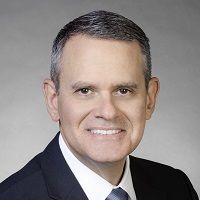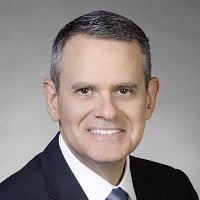That Cash in Your Emergency Fund Doesn’t Have to Be Idle
While it’s important to have cash on hand in retirement, low-risk, low-yield investments can give your emergency fund something to do until you need it.


Profit and prosper with the best of Kiplinger's advice on investing, taxes, retirement, personal finance and much more. Delivered daily. Enter your email in the box and click Sign Me Up.
You are now subscribed
Your newsletter sign-up was successful
Want to add more newsletters?

Delivered daily
Kiplinger Today
Profit and prosper with the best of Kiplinger's advice on investing, taxes, retirement, personal finance and much more delivered daily. Smart money moves start here.

Sent five days a week
Kiplinger A Step Ahead
Get practical help to make better financial decisions in your everyday life, from spending to savings on top deals.

Delivered daily
Kiplinger Closing Bell
Get today's biggest financial and investing headlines delivered to your inbox every day the U.S. stock market is open.

Sent twice a week
Kiplinger Adviser Intel
Financial pros across the country share best practices and fresh tactics to preserve and grow your wealth.

Delivered weekly
Kiplinger Tax Tips
Trim your federal and state tax bills with practical tax-planning and tax-cutting strategies.

Sent twice a week
Kiplinger Retirement Tips
Your twice-a-week guide to planning and enjoying a financially secure and richly rewarding retirement

Sent bimonthly.
Kiplinger Adviser Angle
Insights for advisers, wealth managers and other financial professionals.

Sent twice a week
Kiplinger Investing Weekly
Your twice-a-week roundup of promising stocks, funds, companies and industries you should consider, ones you should avoid, and why.

Sent weekly for six weeks
Kiplinger Invest for Retirement
Your step-by-step six-part series on how to invest for retirement, from devising a successful strategy to exactly which investments to choose.
Editor’s note: This is part five of a five-part series on supplemental income streams in retirement. Part one, Could Supplemental Income Strategies Work for Your Retirement?, is an introduction to the series. Part two is A Managed Account Offers Optimization and Tax Efficiency. Part three is Annuities Provide Peace of Mind and Lifetime Income. Part four is Three Investments That Put Your Money to Work With Less Risk.
We’ve all heard the phrase “cash is king,” and we’ve probably all heard it used to describe a variety of financial principles. While a stack of cash won’t multiply on its own to independently fund your retirement, cash reserves should be part of your overall retirement plan, offering liquidity and flexibility in uncertain or volatile markets.
The common emergency fund advice suggests having three to six months of cash on hand during your working years to address emergency needs like an unexpected expense or to buffer against job loss. But, when you’re done earning, with limited options to quickly raise funds, it is wise to have 12 to 24 months’ worth of your expenses accessible in cash reserves.
From just $107.88 $24.99 for Kiplinger Personal Finance
Become a smarter, better informed investor. Subscribe from just $107.88 $24.99, plus get up to 4 Special Issues

Sign up for Kiplinger’s Free Newsletters
Profit and prosper with the best of expert advice on investing, taxes, retirement, personal finance and more - straight to your e-mail.
Profit and prosper with the best of expert advice - straight to your e-mail.
That may seem like an awful lot of cash to leave metaphorically lying around — and it absolutely is — but the bottom line is you need a larger amount of cash on hand in retirement than you do when you’re working with a steady stream of income. Having access to a pool of reserves may help you avoid liquidating assets in down markets. And the good news is that having access to cash doesn’t mean it has to be idle.
There are ways you can maintain cash liquidity and still earn modest yields on your emergency fund while at the same time helping to combat inflation.
Set up a bank sweep
A bank sweep program transfers funds to a higher interest (FDIC insurance eligible) account once a certain deposit threshold is met. For example, a bank sweep could be set to transfer any excess cash from your checking account to a high-yield savings account or investment account once your balance reaches $10,000. A bank sweep can help you maintain enough cash on hand to manage everyday expenses while ensuring that the excess is going to work in an interest-bearing account. Sweeps are automated, requiring no extra effort from account holders.
Sweeps also can be set to help provide supplemental income from your investments by working in reverse. If your checking account dips below a set threshold, the sweep can automatically transfer money from your savings or investment account to your checking, ensuring you have the necessary liquid cash to meet your expenses.
Sweeps are a good and low-effort method of moving excess cash to an interest-earning account. It’s important to consider, though, that there may be fees to set up the account and potentially to transfer money out of interest-bearing accounts back to checking. Your financial adviser can help analyze your spending and future financial needs to help determine if a sweep account is appropriate for you.
Invest in a money market fund
Money market funds are another option for investors to earn modest returns without sacrificing short-term access to their money. Money market funds are invested in high-liquidity assets like corporate debt, short-term certificates of deposit (CDs) and government bonds. They are designed for investors who may need to enter or exit the investment quickly, so they carry limited barriers for entry, shorter terms and — as a result — limited capital appreciation for your investment.
Because yields from money market funds are generally minimal, they are not a recommended instrument for building your retirement assets. In fact, in a low interest rate environment, money market funds can struggle to keep pace with inflation. They can be effective to supplement your retirement income, though, especially when interest rates are high.
Since money market funds are not invested in stocks, participants stand little risk of losing on their investment, making money market funds a relatively safe option for realizing modest gains on your liquid cash. However, they aren’t ideal for long-term investing, as other investments may offer more attractive returns.
Consider a short-term certificate of deposit
When it comes to having quick access to your money, a CD may not initially be top of mind due to the traditional longer maturity terms of a few years to a decade or more. But CDs are also available in terms of a year or less and sometimes as few as 30 days. Short-term CDs can be a great way to set money aside for a planned future expense — like home repairs or a small trip — while earning a guaranteed rate of return for a specified period in the form of interest.
When investing in a short-term CD, it’s important to remember that your money is locked in for the term of the CD, and any early withdrawal will likely incur a penalty. Short-term CDs also traditionally earn a lower interest rate than longer-term instruments.
Still, you can always reinvest the proceeds of a shorter-term CD back into another CD or other investment vehicle once it matures. In a rising interest rate environment, short-term CDs can be a particularly effective investment for earning a small yield while considering your options for the future of your money.
A financial adviser can help you determine your unique mix to allocate for your emergency fund, liquid investments and growth and income solutions. As you enter retirement, it’s important to have access to cash for unexpected expenses.
And while it’s best not to count on your emergency fund as a high-growth investment opportunity, it also doesn’t mean you need to store it under your mattress. Low-yield, low-risk investments can help modestly grow your cash reserves without risking your ability to pay for a rainy day.
The other articles in this series:
Part one: Could Supplemental Income Strategies Work for Your Retirement?
Part two: A Managed Account Offers Optimization and Tax Efficiency
Part three: Annuities Provide Peace of Mind and Lifetime Income
Part four: Three Investments That Put Your Money to Work With Less Risk
related content
- When It Comes to Cash Yields, Cash Is No Longer Trash
- Are CDs a Good Investment in 2023?
- Financial Advisers Share the Best Financial Advice They’ve Ever Received
- Money Market Account vs. High-Yield Savings Account
Profit and prosper with the best of Kiplinger's advice on investing, taxes, retirement, personal finance and much more. Delivered daily. Enter your email in the box and click Sign Me Up.

Rich Guerrini is the President and Chief Executive Officer of PNC Investments. In his role, he is responsible for all sales, operations, risk and compliance activities for the retail investments organization. Prior to his current responsibilities, Guerrini was Executive Vice President and Managing Director of Alternative Investments for PNC Investments and was responsible for development and rollout of the PNC Investment Center and PNC’s web-based investment offering.
-
 4 Estate Planning Documents Every High-Net-Worth Family Needs
4 Estate Planning Documents Every High-Net-Worth Family NeedsThe key to successful estate planning for HNW families isn't just drafting these four documents, but ensuring they're current and immediately accessible.
-
 Love and Legacy: What Couples Rarely Talk About (But Should)
Love and Legacy: What Couples Rarely Talk About (But Should)Couples who talk openly about finances, including estate planning, are more likely to head into retirement joyfully. How can you get the conversation going?
-
 How to Get the Fair Value for Your Shares in This Situation
How to Get the Fair Value for Your Shares in This SituationWhen a sale of substantially all corporate assets is approved by majority vote, shareholders on the losing side of the vote should understand their rights.
-
 The 4 Estate Planning Documents Every High-Net-Worth Family Needs (Not Just a Will)
The 4 Estate Planning Documents Every High-Net-Worth Family Needs (Not Just a Will)The key to successful estate planning for HNW families isn't just drafting these four documents, but ensuring they're current and immediately accessible.
-
 Love and Legacy: What Couples Rarely Talk About (But Should)
Love and Legacy: What Couples Rarely Talk About (But Should)Couples who talk openly about finances, including estate planning, are more likely to head into retirement joyfully. How can you get the conversation going?
-
 How to Get the Fair Value for Your Shares When You Are in the Minority Vote on a Sale of Substantially All Corporate Assets
How to Get the Fair Value for Your Shares When You Are in the Minority Vote on a Sale of Substantially All Corporate AssetsWhen a sale of substantially all corporate assets is approved by majority vote, shareholders on the losing side of the vote should understand their rights.
-
 How to Add a Pet Trust to Your Estate Plan: Don't Leave Your Best Friend to Chance
How to Add a Pet Trust to Your Estate Plan: Don't Leave Your Best Friend to ChanceAdding a pet trust to your estate plan can ensure your pets are properly looked after when you're no longer able to care for them. This is how to go about it.
-
 Want to Avoid Leaving Chaos in Your Wake? Don't Leave Behind an Outdated Estate Plan
Want to Avoid Leaving Chaos in Your Wake? Don't Leave Behind an Outdated Estate PlanAn outdated or incomplete estate plan could cause confusion for those handling your affairs at a difficult time. This guide highlights what to update and when.
-
 I'm a Financial Adviser: This Is Why I Became an Advocate for Fee-Only Financial Advice
I'm a Financial Adviser: This Is Why I Became an Advocate for Fee-Only Financial AdviceCan financial advisers who earn commissions on product sales give clients the best advice? For one professional, changing track was the clear choice.
-
 I Met With 100-Plus Advisers to Develop This Road Map for Adopting AI
I Met With 100-Plus Advisers to Develop This Road Map for Adopting AIFor financial advisers eager to embrace AI but unsure where to start, this road map will help you integrate the right tools and safeguards into your work.
-
 The Referral Revolution: How to Grow Your Business With Trust
The Referral Revolution: How to Grow Your Business With TrustYou can attract ideal clients by focusing on value and leveraging your current relationships to create a referral-based practice.